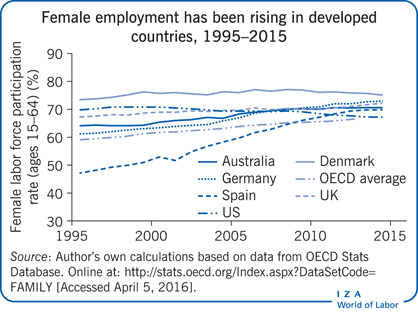Elevator pitch
Childhood obesity has been rising steadily in most parts of the world. Popular speculation attributes some of that increase to rising maternal employment. Employed mothers spend less time at home and thus less time with their children, whose diets and physical activity may suffer. Also, children of working mothers may spend more time in the care of others, whose childcare quality may vary substantially. While a majority of US studies support this hypothesis and have clear policy implications, recent studies in other countries are less conclusive, largely because institutional arrangements differ but also because methodologies do.

Key findings
Pros
The association between maternal employment and childhood obesity varies regionally, with inconsistent findings.
There is little evidence that working mothers spend less time with their children.
Maternal employment might reduce obesity through healthier lifestyles, including higher quality diets and more physical activity.
High-quality childcare has a positive effect on child development and may influence childhood obesity.
By helping a family escape poverty, maternal employment could improve children’s weight outcomes.
Cons
The rise in maternal employment is related to the rise in childhood obesity.
Having a mother working non-standard or long hours is associated with childhood obesity.
Maternal employment might reduce time spent with children, which could in turn increase childhood obesity.
Maternal employment might lead to unhealthier diets and sedentary behavior among children, thereby increasing childhood obesity.
Maternal employment could increase childhood obesity if external care is of lower quality.